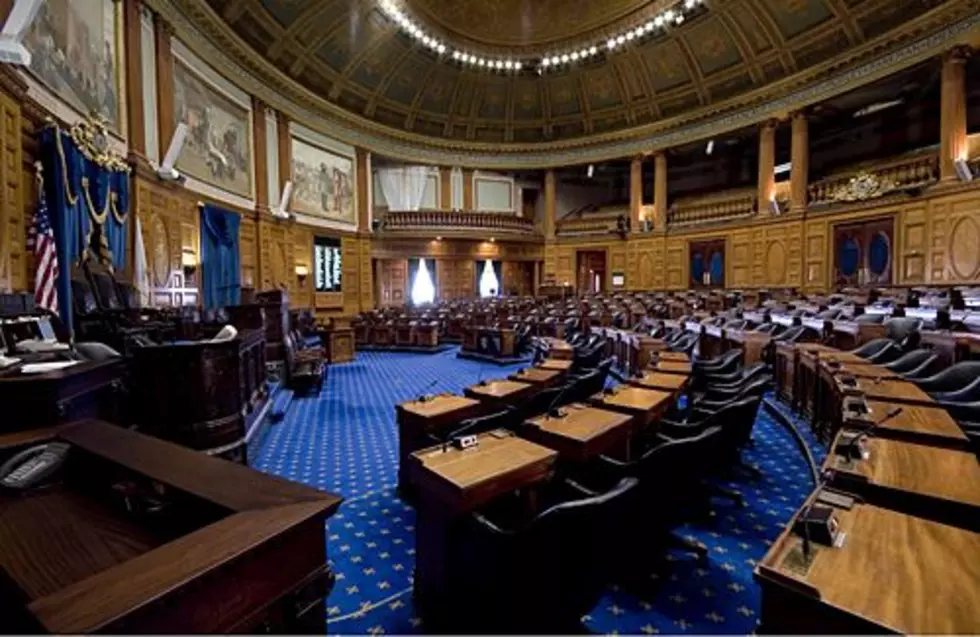
Farley-Bouvier Authors Bill to Combat Sexual Violence on Campuses
The Massachusetts Legislature has passed S.2979, An Act relative to sexual violence on higher education campuses. According to a press release, the bill was authored by State Representatives Tricia Farley-Bouvier (D-Pittsfield) and Lori Ehrlich (D-Marblehead) and provides Massachusetts institutions of higher learning with the tools and training needed to prevent sexual violence and misconduct on campus.
Rape culture is alive and well on our campuses. Twenty percent, or one in five, young women are sexually assaulted at college, the great majority between Labor Day and Thanksgiving of their freshman or sophomore year… This bill, led by young people themselves, will go a long way in changing the culture, preventing sexual assault, and bringing justice for those impacted. ~ Farley-Bouvier
The enacted legislation accomplishes the following:
- Instructs each institution to create policies that comply with privacy and confidentiality laws that outline jurisdictional responses, disclosure of information once consent is received, and methods of notifying the local district attorney’s office.
- Requires institutions to summarize their plan for resolving complaints of sexual misconduct both promptly and equitably.
- Mandates that higher education institutions to create procedures that will allow for frequent review and updating of policies on sexual misconduct.
- Requires institutions of higher education to enter into a memorandum of understanding with local law enforcement.
- Directs higher education institutions that do not have their own sexual assualt crisis centers to enter into a memorandum of understanding with a local community-based sexual assault crisis center. The services provided by the center will be free of charge to the student to provide an additional resource following incidents of sexual misconduct.
- Calls for each campus to appoint one confidential resource advisor. This advisor will not be a mandatory reporter and each institution will designate a category of employees who can serve as a confidential resource advisor.
- Creates a task force comprised of stakeholders from government, higher education, student groups, and victims’ advocacy groups to develop model questions for use by institutions in sexual misconduct climate surveys, which shall be conducted not less than once every 4 years.
- Directs institutions collect anonymous responses to sexual misconduct surveys and prohibits the disclosure of identifying information.
- Mandates surveys gather information on topics such as, the number of reported and underreported incidents of sexual misconduct, when and where the incidents occurred, student awareness of institutional policies and procedures, contextual factors, demographic information that could be used to identify at-risk groups, and perceptions of campus safety.
- Requires model questions include a subset of questions taken from or consistent with questions in the Administrator-Researcher Campus Climate Collaborative survey or another high-quality sexual misconduct survey that’s in use by institutions.
- Instructs the task force to use best practices, review surveys that have been developed and previously utilized, provide opportunities for written comment from organizations that work directly with survivors of sexual misconduct and advocates, consult with institutions on strategies for optimizing the effectiveness of the survey, and account for the diverse needs of and differences between the commonwealth’s institutions.
- Requires the commissioner of higher education to periodically review, approve, and make recommendations for changes to the survey model questions provided by the task force.
- Allows institutions to develop and use their own survey if it is designed to provide the institution with data to inform policies and prevent and respond to sexual misconduct, meets quality standards determined by the commissioner, and includes the subset of model questions mandated by the legislation.
- Mandates each institution post a summary of the results on the institution’s website within 120 days after completion and analysis of the survey.
The legislation now heads to the Governor’s desk.
Passage of this bill sends a powerful message from Massachusetts leaders that while you attend one of our state’s world class campuses, we care about your safety…With 90 percent of sexual assaults not reported, the data out is only as good as the data in. By going directly to students, or even professors and staff, and asking them about their lived experience, this bill provides a powerful tool for college administrators who are responsible for student safety. ~ Representative Lori Ehrlich

More From WBEC AM









